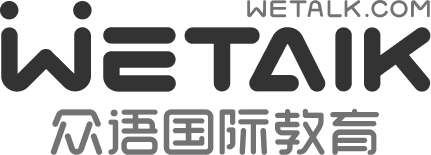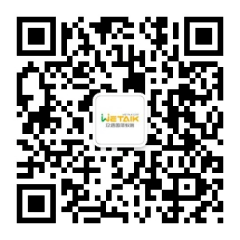What is the experience of IB+STEM education?

Today, the IB curriculum as a model of secondary school general education has been extremely widely recognized, and STEM education has been equally popular. If IB education produces "inquisitive, knowledgeable and caring young people who contribute to a better and more peaceful world through an understanding and respect for multiculturalism," STEM education produces more deep-thinking innovators and problem-solvers who can apply science and technology in groundbreaking ways to solve crises once and for all.
It can be said that IB reflects the breadth of general education, while STEM education reflects the depth. The horizontal line represented by IB education and the vertical line reflected by STEM education just constitute the "T" shaped talents hoped to cultivate in today's society.
The Ministry of Education promotes STEM curricula with a coherent policy
Singapore has performed well in international student assessments such as PISA and TIMSS, ranking among the best in the world in mathematics and science. However, the Singapore government and education sector have not stood still, and have been committed to promoting the cultivation of students' holistic qualities. The STEM curriculum in Singapore's primary and secondary schools is developed under the policy framework of the Applied Learning Programme. STEM applied learning does not set up exams, and strives to guide students to find the fun and practical use of learning, so as to generate the motivation of independent learning and improve academic performance. In order to better empower teachers, the Ministry of Education has also developed the "STEM Guide" and developed a simple and easy-to-use teacher training model with a four-quadrant chart of integration and application from low to high, helping teachers to gradually shift from traditional teaching with low integration and low practical application of disciplines to interdisciplinary practice teaching with high both.
Pedagogical emphasis
Interdisciplinary learning and multidisciplinary knowledge integration
The establishment of interdisciplinary units and the establishment of links between disciplines has always been one of the focuses of IB curriculum, and the integration of multiple disciplines is the essential feature of STEM education that is different from traditional science and engineering education. At present, most cutting-edge research fields are interdisciplinary, and the new generation of scientists must simultaneously understand and integrate the knowledge of multiple disciplines such as mathematics, physics, computers, chemistry and biology. In the STEM education of Shihua, students are guided to learn multiple disciplines in depth, and at the same time, students are trained to observe and think with different disciplinary perspectives and cognitive models, so as to truly realize the leap in thinking and cognitive ability.
The abilities students develop in STEM explorations have longer-term value, especially in the face of future uncertainties and challenges. This is completely consistent with the five categories of Learning ability advocated by the IB system: thinking Skills, communication skills, social skills, self-management skills and research skills, including more than 100 specific ATL Skills (Approach To Learning). The exploration and practice of STEM can support the cultivation and development of these abilities more effectively and effectively.
First of all, what is IB?
The IB, which stands for International Baccalaureate, is a curriculum widely used by international schools around the world. Founded in 1968, there are nearly 5,000 IBO-International Baccalaureate Organisation accredited IB schools in 146 countries around the world. The headquarters of the World IB Organization is in Geneva, Switzerland, so the setting of the curriculum and the scoring criteria are independent and impartial without interference or influence from any national government. The IB program is not limited to high school, it includes a range of courses from elementary school, middle school to high school. a. Primary Years Programme (PYP - Primary Years Programme) b. MYP - Middle Years Programme c. High school curriculum (DP-Diploma Programme) The primary school curriculum (PYP) is based on the advanced learning concept of inquiry, and has been highly recognized in primary and middle school education in foreign countries. IB high school curriculum (Diploma curriculum), the representative of high standards and a complete teaching system, has been highly recognized by universities around the world, and the diploma has a high gold content.
Singapore students excelled in last year's IB exams. Of the 99 students who scored a perfect 45, more than half were from Singapore. Of the 2,228 Singaporeans who took the test, the pass rate was 97.73%, much higher than the global average of 76.68%. Nearly a third scored more than 40 points, compared with 7.3% of test takers worldwide. The average score of Singapore's test takers was 38.35, while the global average was 29.81. Let's highlight that
The IB High School Diploma (Diploma programme) has several characteristics:
① All IB schools in the world must be certified by IBO (Global IB Organization) before they can teach IB courses. The certification process is very rigorous, and the teacher resources required for training are very large. Therefore, schools providing IB courses are generally well-funded and large-scale schools. In the UK, for example, there are more than 3,000 secondary schools, but only about 200 of them offer IB, and most of them are private schools. Only A small number of schools offer both A-levels and IB.
Students must attend an accredited IB school to enroll in the two-year high school Diploma program. After two years of formal study, you are eligible to take the final unified examination. [The difference with A-levels is that] A-levels are taken in the last two years of high school (ages 16-17), and AP courses can be taken at any stage of high school (ages 14-17). Students can even study on their own and go to A test center to take the A-level or AP exams, which can be taken at any grade level.
(3) The IB curriculum attaches importance to both arts and sciences, with a wide range of courses and relatively little flexibility. Students can choose one subject from one of the following six groups and must choose three high level and three Standard Level courses.
standard level). Among them, the advanced three courses, usually related to the major you want to study in college, for example, students who want to study engineering must choose advanced mathematics and advanced physics courses. The six classes are: First language; A second language; The individual and society (history, geography, economics, business management, psychology, philosophy, religion, etc.); Experimental sciences (physics, chemistry, biology, design, exercise and health, etc.); Math (there are a variety of math difficulties to choose from); Art (music, dance, film, drama, art and design, etc.) or take another subject from Groups 2 to 4.
IB is one of the three courses with the most heavy workload, the most demanding and the most stressful. Why do you say that?
a.IB must take all six courses in the exam. A-levels, by contrast, usually require only the top three or four grades; The subjects and number of AP exams are determined by the student.
b.IB emphasizes that students should have the basic ability of listening, speaking, reading and writing in a second foreign language in addition to their mother tongue, and have a certain understanding of the language and culture.
c. In addition to the six subjects, IB also requires students to complete the following three areas of study within two years:
o Theory of Knowledge (TOK)
o Extended Essay (complete a 4,000-word essay)
o CAS activities (Creativity = creativity, Action = action, Service = service)
IB is also the most complete of these three courses, and the most fully prepared for university research and future study.
Let's look at the three areas of learning that are unique to IB - knowledge (TOK), extended essay (EE) and creativity | action | service (CAS).
a. Theory of Knowledge (TOK) focuses on developing students' ability to acquire knowledge and think critically. At the end of the course, students are required to write a 1,600-word essay combined with real life and make a presentation.
b. Extended Thesis (EE), which requires students to choose a topic of interest, independently research and complete a 4,000-word thesis, which requires a standardized format and independent opinions or results.
c. CAS(Creativity, Action, Service) requires students to participate in art and creativity, sports and health, and social service activities, record time and reflect on the harvest. These activities require students to step out of their comfort zone to try new projects, develop a healthy lifestyle and serve the community, laying the foundation for the formation of a sound personality.
From this unique three-pronged learning mission alone, IB focuses on developing students' international perspective and social responsibility. The ability development of these courses goes far beyond the requirements of the general secondary School diploma. The kids are done
The IB program has greatly exercised their independent research ability, critical thinking ability and self-improvement ability. It is easier for students to adapt to the requirements of university after entering the university. Can't you see why
IB is so demanding, so difficult, but also more and more attention.
What type of child is suitable for IB?
The simple answer is --
IB is suitable for students with comprehensive ability, including strong learning ability and essay writing ability, comprehensive and balanced development of subjects, broad interests, and strong practical ability.
In practice, we parents can make decisions according to the characteristics of the child and the actual situation. Here are a few considerations for you to make a reference. ① What grade is the child in now? Is the main purpose of choosing a school/course to go to university? If the child is already in the last two years of high school, education is imminent, unless the child's ability in all aspects is very strong, it is absolutely not recommended to choose IB at the final stage. By contrast, the model of A domestic course plus A-level or AP test scores is likely to be more suitable for university. If your child is still in the junior high school stage of primary school, has the ambition to study abroad in the future, and there is an international school in the local IB primary school curriculum, it is highly recommended to give it a try. ② Is the child partial? Because IB emphasizes both arts and sciences, it is not suitable for children who are partial in the traditional sense. Whether biased or biased children, choose flexible A-Level courses, you can focus on 3 to 4 A-Level courses that you are good at, it is easier to get good grades and get the admission of your favorite university. For students with a balance of arts and sciences, such students are also suitable to consider the IB program if they have yet to explore the professional direction of their future higher education. On the other hand, if students have special interest and talent in a certain subject, they may feel that they do not have time to give full play to their strengths in IB high school courses, or because they spend too much time on their strengths, they do not have the ability to balance IB courses in science, humanities, foreign languages, arts, social work and other aspects. How is the child's English writing ability? English and Chinese writing in IB courses is very heavy, which is the weakest one for most Chinese students. Unless a child has been studying in an international school since childhood and has a strong ability to write essays, it will be very challenging to learn IB. ④ How is the child's time management ability? In the last two years of IB, almost all children have to stay up late to complete all the curriculum requirements, and if the independent learning ability and time management ability are not strong children, there will be greater challenges.
It is precisely because of the improvement of the IB curriculum system and the successful experience of IB content teaching that Singapore's continuous exploration of the science and innovation education system and its strong support for the school have been able to On the basis of the complete general education framework, there are sufficient resources to carry out STEM education, expand students' horizons, help students explore topics of interest, and continue to explore the effective integration of IB education and STEM education.
More importantly, the STEM curriculum in Singapore can stimulate students' wider interest and generate the motivation of deep learning; To expose students to the most cutting-edge and exciting research and innovation at the high school level, beyond the content of the curriculum,
Let students find points of interest in a wide range of contacts, and then learn and study independently, perhaps making it their new goal or passion, and in the near future become future leaders in exploring and solving global challenges.


